My bespoke bow tie, from La Bowtique
Back in December we covered the various styles of bow tie, from batwing to butterfly.
Learning about the traditions and conventions helped me clarify which style I prefer for myself, and today I’ll be covering which one I had made, and why.
My guide through all this was Mickael Korausch, who makes some of the finest bespoke bows I’ve tried, under his brand La Bowtique.
Mickael was great at walking me through an area I know relatively little about, cutting and making the tie himself, and also giving me tips on tying the bloody thing - something I do even less than write about them.
Deciding on the width of a bow tie is fairly straightforward. The guideline is for it to match the outside corners of your eyes, and you generally don’t want to vary much from that.
As we covered in the first article, having a bow that is much wider or much narrower is what makes some styles look silly, even comical. You can get away with a lot in the height of a bow, but less in the width.
I did want a bow that was quite tall, both because I thought it would go well with my relatively long face, and (more importantly) because it would sit better with the velvet jacket I usually wear.
That jacket, shown in this article, is from Cifonelli, their 6x2 double breasted. Its low buttoning point means there is a big opening in the chest for the bow to sit in. A small style could easily look out of proportion.
The jacket also has very wide lapels. That’s partly driven by the low buttoning, but is also a characteristic of Cifonelli generally. My pale-grey DB from them for example, shown here, is a 6x4 but still has wide lapels (4.5 inches at the point, compared to 4.75 on my velvet).
So, a big bow was needed. That ruled out a batwing, as that’s best as a narrower shape. And I’ve never been much of a fan of the diamond-end, as it can look a little gimmicky.
So a large butterfly. But how large? Although it had a good amount of space to fill, I wanted something that was in proportion to the rest, not a statement on its own (unlike Mickael’s bow for Marc Jacobs, for example).
The way you make a bow tie like this - large but not too dramatic - is to give it a ‘dropped’ shape.
This is the kind of thing you never realise until someone points it out, but after that can’t stop seeing.
The top and the bottom half of my bow tie are not the same size. As you can see in the image below, the bottom half is actually larger, bulging out rather a lot.
You don’t notice when the bow tie is tied, however. I doubt anyone looking at the images in this article thought, ‘that bow is bulging at the bottom’
Yet it does make a difference to how big you can make the bow without it looking over the top, or being so tall it starts to poke you in the chin. (You can also pull the two sides down slightly after tying it, if you want, to exaggerate the effect.)
Mickael’s standard dropped butterfly is 4cm on the top half, and 5.5cm on the bottom. It’s what you can see on Buzz on the La Bowtique site here.
I tried that on, but it felt a little bit too much for me. As if it was trying to make a bit of a statement, rather than fitting in with everything else.
So Mickael suggested making both top and bottom a half centimetre shorter: 3.5cm on the top, 5cm on the bottom. That’s the benefit of have something made bespoke, and it’s what you can see in these images.
Interestingly, that means my style of bow is more ‘dropped’, proportionately, than anything else Mickael does. But again I don’t think it’s noticeable unless you point it out.
For the material I went with a very classic grosgrain silk, with a lightweight lining. The usual rule is to match the lapels of the jacket (the facings), and mine are unusual in being velvet rather than silk.
But I felt that a velvet bow might be too much, and I do have a tuxedo with grosgrain lapels that I’d like to wear it with as well.
The lining made quite a big difference compared to other bows I’ve had. It’s lighter, and makes the bow feel more malleable, with more volume.
That’s helped by the handmade construction too: most bow ties on the market have the lining fused to the front half of the bow, which means they have less body. With an unfused construction, the bow looks much more natural - for example if you pull the ends forward slightly, to give it a more three-dimensional shape.
In terms of tying tips, this is something I’ve been good at in the past, and even enjoyed, but the memory fades fast.
During the process with Mickael I must have tied it 30 or 40 times, and it’s only after doing it that much again that I really felt I’d nailed it once more.
I won’t go into the tips we discussed, as they’re all in a video Mickael is putting together. I'll add a link when that's live. For the moment I’ll just say that the things that made the most difference for me were:
- Tying the first over-and-under knot tightly
- Doing that knot the right way round (the right end on top)
- Making sure the front part of the bow was big enough before tying the back, and
- Not worrying about the overall shape until the bow is tied. It’s all in the fiddling afterwards
If you’re doing everything right though, what you need is practice. So now I have to find an excuse to wear black tie again, and keep the practice up.
My bespoke bow tie cost £200 (the starting price for bespoke) and took 4 weeks to make (the minimum, standard is 4-6 weeks). The closest ready-made bow would be a large dropped grosgrain, which costs £150.
Many thanks to Huntsman for allowing us to shoot in their club room.
Photography: Mohan Singh











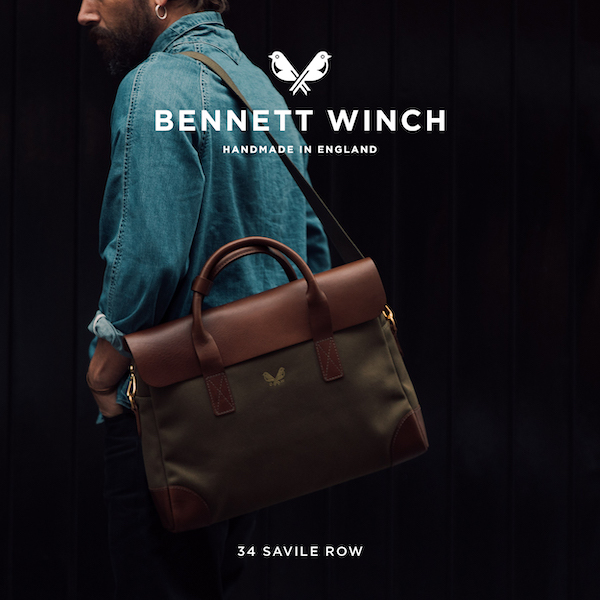




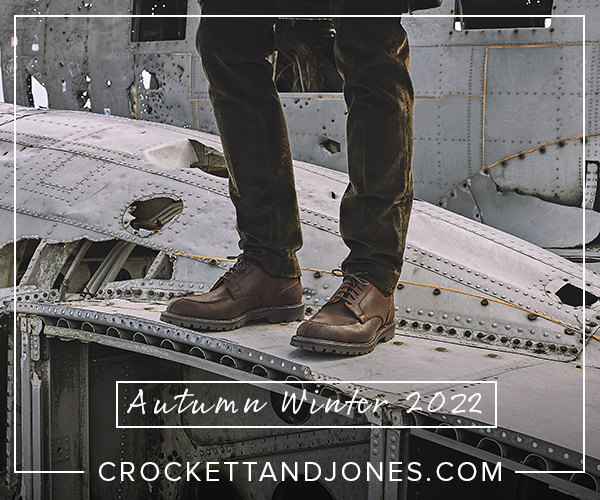


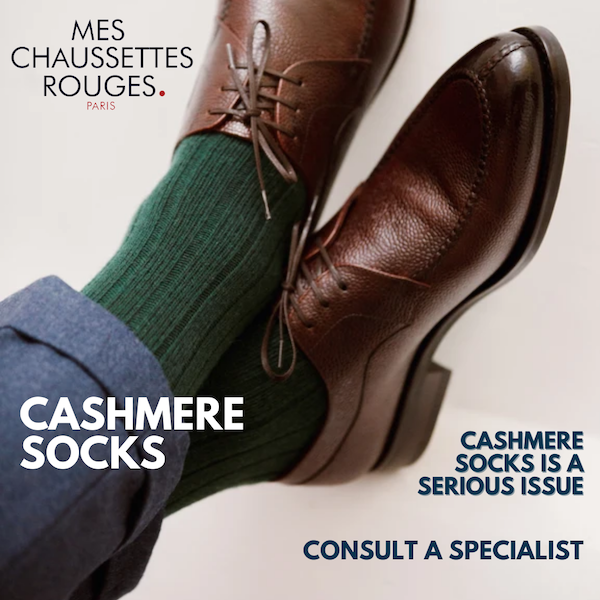










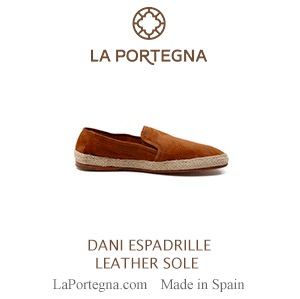
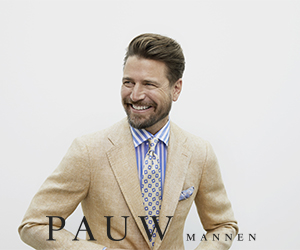

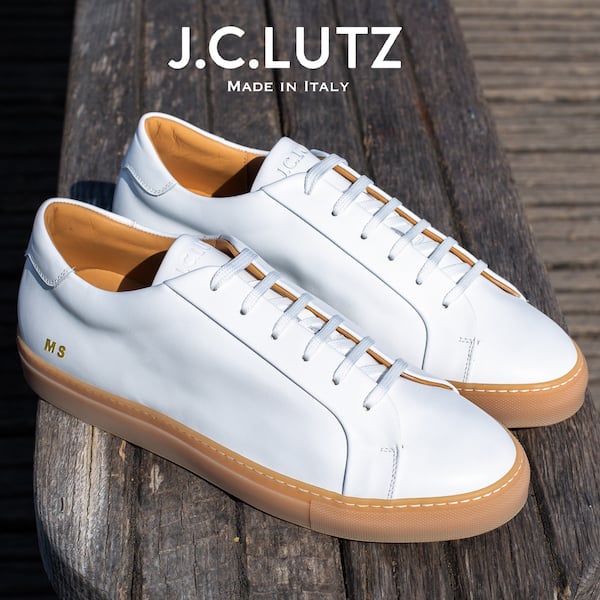

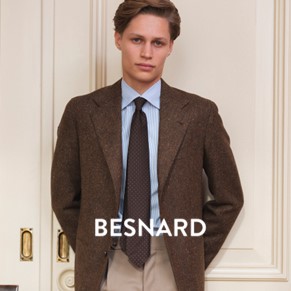
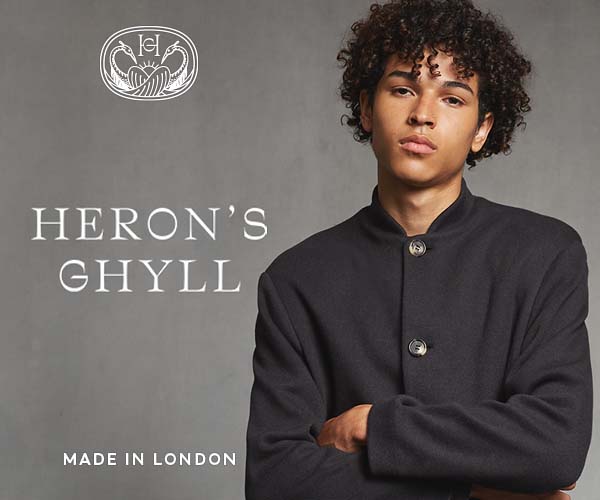

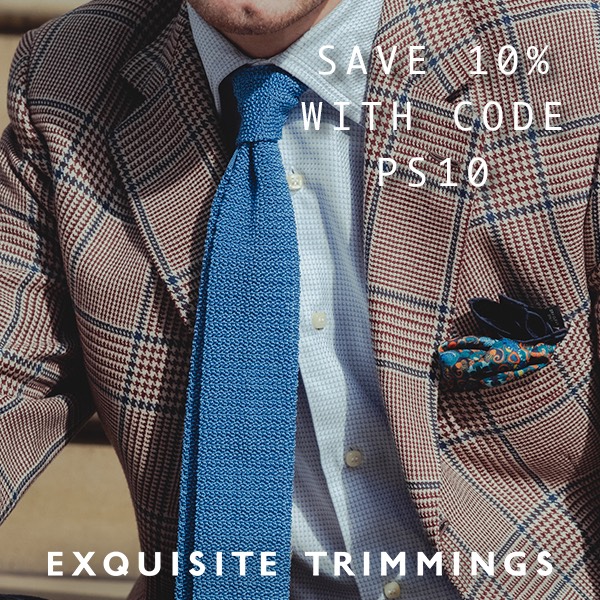
Lovely tie Simon, and interesting points regarding proportions. Is your tie one-piece, as opposed to adjustable?
Yes it is. It’s a nice thing to have in a bespoke tie, although it does assume that your weight doesn’t fluctuate that much.
Your weight would have to fluctuate by quite a lot to make your neck size change to the extent that your tie would no longer fit.
I haven’t found that’s true with bow ties. I’ve gone from a 15 inch neck to a 15 1/2 inch in the past, and given how precisely the shape of the bow changes at the edges of its shape, a half inch would make a noticeable difference.
For example, it was only when tying with Mickael that I realised I don’t tie the first knot close enough to the point where the band of the tie starts to expand into the bulge of the middle. That tweak made the front and back of the tie consistently more even, and that was a shift of less than half an inch.
You can make up a little of that by tying the bow tighter or looser, but not all.
Hi Simon,
Who made the shirt?
Thanks,
S
D’Avino
Good morning Simon and the PS family…your butterfly is impressive in size..since we don’t have the metric system in the states, i will assume it is about 3 1/2 inches….How do i tie my bow ties???…same as tying my shoes……Everyone enjoy your day..peace
This is a very good lesson in the value of proportions and harmony in an outfit. It’s also something I find most men don’t naturally understand. Almost like you either have that aesthetic sense or your don’t. Too many guys wear relaxed blazers with slim tapered trousers, wide lapels with skinny collars etc, it just looks odd. (Unless of course you’re Demna Gvasalia and you bend these proportions deliberately). But I do think this aesthetic sense is something that can be learned.
Separately what trousers are you wearing in image no 2?
We’ll put Zo.
Those are my tux trousers that Cifonelli made with the jacket
Size is important, as always….. I do appreciate a nicely made tie but this one is too big for my taste as it seems to attract my attention as ‘big’. Nice as it must be in the flesh its a personal thing of course. Happy Knotting.
Simon, A question: in your photos, it looks like the rear bow, the bow behind the front one, is slightly narrower than the front. Can you tie that bow tie so the two are even – or perhaps the rear bow is just, just slightly wider. While this may be less important with a black bow tie, it does make a significant difference with a pattern one. In order to accomplish this, one must have the back blade of the tie slightly longer as it hangs straight down before making the loop.
While the black tie does look good on you, perhaps you should overcome your resistence and try other fabrics and colors.
Jack
Thanks Jack. Yes I think I have a habit of doing that, and it does look better if they are the same or the back one is bigger, as you say.
I’m afraid I’m unlikely to start wearing bows in any other context though, sorry
On the subject of tying a bow-tie, once I realised that it’s exactly the same as tying a shoelace, only around the neck, that made it all so much easier. (Second tip – practice around your knee on a dull train journey, then move to your neck. For some reason it makes it easier.)
Yes. The only way to tie a bowtie is to close your eyes and pretend you tie shoelaces, then adjust. Any conscious approach falls flat (for me) and any pretied bowtie obviously is, just wrong
Sorry Simon but too much height on this for me. It looks as though you could crush the points under your chin if you dipped your head even a touch.
Thanks Clive, interesting it comes across that way. It’s actually very comfortable under the chin, and the top is quite short compared to the bottom half
I can’t make sense of the Cifonelli being 6×2. Surely it’s 6 x1 (?). Hence the low buttoning point. At least that’s my understandin of the usage (which i find a bit confusing)- 6×2 =two rows of buttons buttoned, 6×1 =1 row. I can’t quite see in the picture but I always understood 6×1 to be their house style.
Yes sorry, you’re right. I mean 6×1, but I think I use 6×2 for exactly the reason you say, that the established method doesn’t make any sense – one number refers to buttons, the other to rows!
Hi Simon,
I went back and re-read your article on bow ties referenced in this discussion. You concentrate on wider, butterfly styles. I wanted to make you and your readers aware of an earlier style from the 30’s thru the 60’s of bow ties worn by architects – especially Le Corbusier. I have never seen a picture of Corbu in a jacket, almost always DB, without a bow tie. (Only one picture from the CIAM meeting aboard the “Patris II’ in 1933 show him with a four in hand.) The small, tightly tied bow tie became a signature of the modernist movement. In the 12 years that I worked with the great modernist architect, (and protege of Le Corbusier), Jose Luis Sert, I never saw him wear anything but a bow tie. These were always handmade, small and usually of a single color. Elegant but understated. It has been suggested that a bow tie worked better for an architect as it did not interfere when leaning over a drawing board – but rather, I believe that it was a chosen symbol of a new style, refined, simple and certainly less is more. A lineage far beyond preppy or professorial. A case of an accessory of dress having broader implications and additional meaning – which is what PS advocates.
Jack
Thank you Jack, that sounds wonderful.
I only wish bow ties weren’t so very unusual these days, to the point of being antiquated (at least in London)
I wear a great many old-fashioned things, without a care of what others think. But for some reason, I can’t bring myself to rock one of these. (Has Tucker Carlson tainted it forever?) But I love the way they look, and this one is more or less my ideal style. Maybe one day …
Even for black tie PB? Or do you not ever go to black tie events?
Oh it’s definitely appropriate for black tie in any case. Unfortunately, I so rarely get the chance to attend an event like that, I can’t justify the investment. However, my wife recently became a well-known writer, so I’m hoping that changes lol.
Fingers crossed!
Just do it..has tucker carlson tainted it?????? Of cause not..just do it..peace brother
Perfection…..I recently saw a similar feature and a bowtie created/marketed by Matt Hranek of W.M. Brown fame (?). Love the look, especially with the wide lapels. I guess I must invest.
Hello Simon, In your older posts you advocated opera pumps in patent as the best choice for the tuxedo. Is that still (or even more) true today? Thank you.
Did I? Blimey. I wouldn’t really recommend patent today, it’s just a layer of shiny plastic basically.
I’d recommend either smart, highly polished oxfords, or a black slipper, suede or velvet
I’m having a bit of a debate as to whether or not it’s appropriate to mix textures of the jacket facing, tie, and cummerbund. If wearing a tux with smooth satin facing, can I wear a grosgrain tie? And if so, should the cummerbund match the tie or the facing?
I think it’s more harmonious if they’re the same, but it’s not the end of the world if they’re different. I can even see an argument that the contrast is nice.
I’d have the cummerbund the same as the bow tie probably.